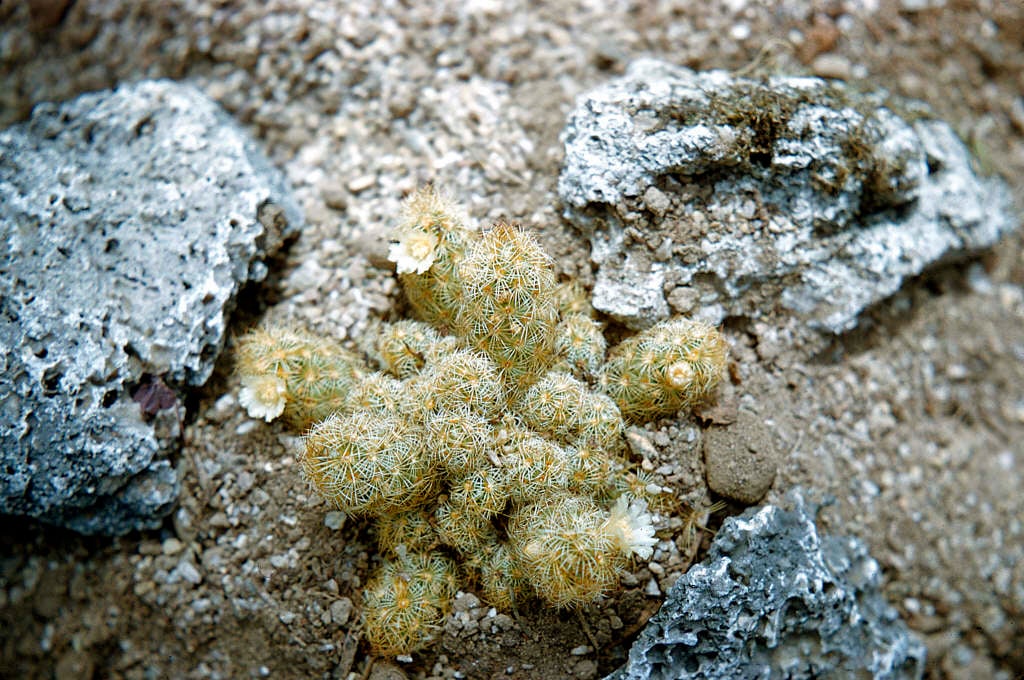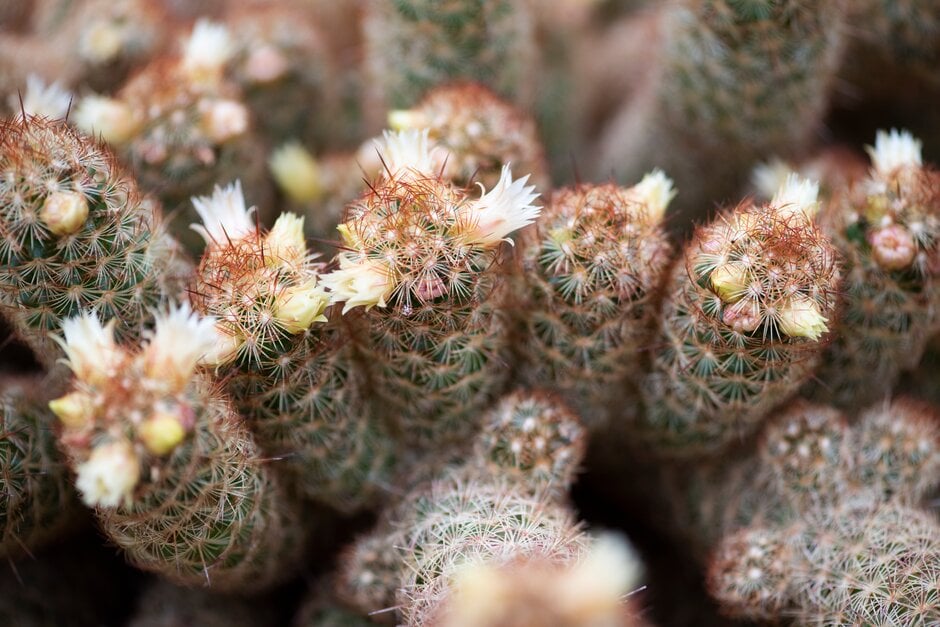Mammillaria elongata
ladyfinger cactus
A cactus with clustered cylindrical stems to 15cm in height, the spines creamy-yellow to brown; flowers 1.5cm in length, pale yellow or tinged pink
Size
Ultimate height
0.1–0.5 metresTime to ultimate height
5–10 yearsUltimate spread
0.1–0.5 metresGrowing conditions
Moisture
Well–drainedpH
Acid, Alkaline, NeutralColour & scent
| Stem | Flower | Foliage | Fruit | |
| Spring | Green | |||
|---|---|---|---|---|
| Summer | Green | Pink Yellow | ||
| Autumn | Green | |||
| Winter | Green |
Position
- Full sun
Aspect
East–facing or South–facing or North–facing
Exposure
Sheltered Hardiness
H2Botanical details
- Family
- Cactaceae
- Native to GB / Ireland
- No
- Foliage
- Evergreen
- Habit
- Clump forming
- Genus
Mammillaria are spiny cacti with spherical or columnar stems, often in clusters, with many prominent tubercles, and funnel-shaped flowers usually in a ring near the apex of the stem
- Name status
Correct
- Plant range
- C Mexico
How to grow
Cultivation
Grow under glass in a standard cactus compost, in bright, filtered light, with low humidity. When in growth water moderately and feed every two or three weeks with a balanced liquid feed. Keep almost dry in the winter
Propagation
Propagate by seed sown at 19 - 24°C in early spring or by offsets
Suggested planting locations and garden types
- Patio and container plants
Pruning
No pruning required
Pests
May be susceptible to mealybugs
Diseases
Generally disease-free
Get involved
The Royal Horticultural Society is the UK’s leading gardening charity. We aim to enrich everyone’s life through plants, and make the UK a greener and more beautiful place.

